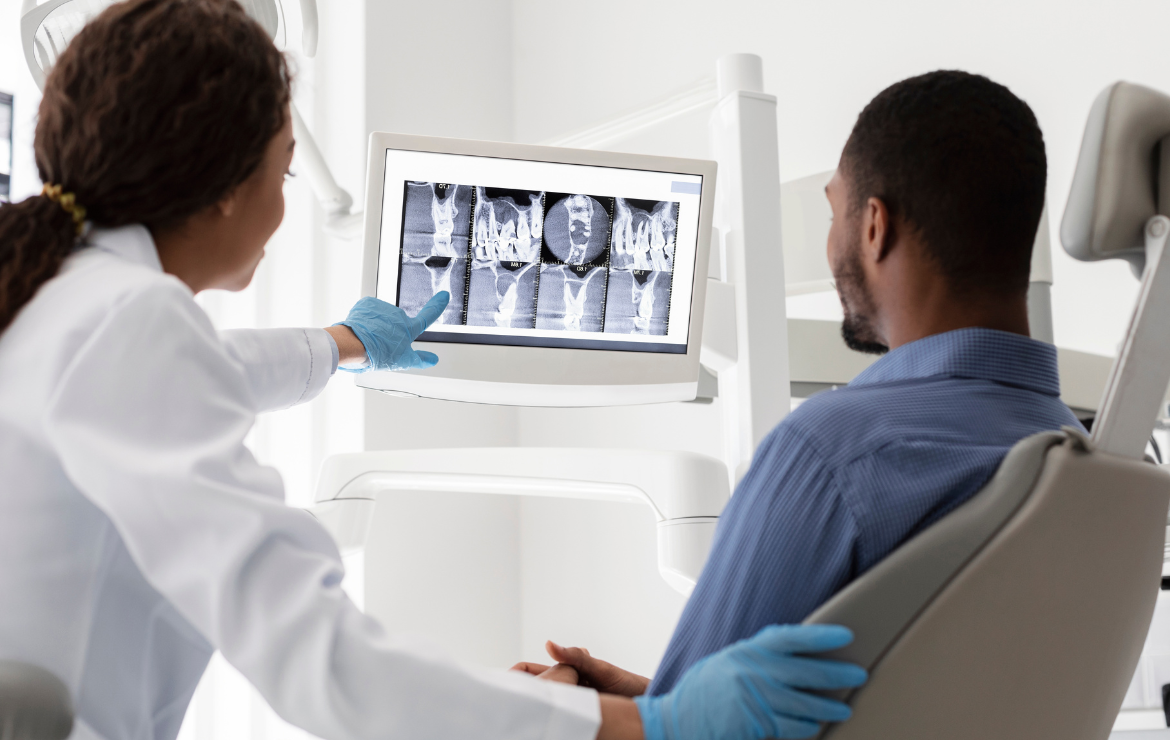Common Workplace Mouth Injuries

Mouth injuries in the workplace can range from minor abrasions to severe trauma. Understanding the common causes and industries where these injuries occur is essential for claims professionals to handle related cases effectively.
Before we discuss common workplace injuries and the industries where they are most prevalent, let’s address the most common question: If a tooth is injured or knocked out at work, it’s crucial to act quickly to preserve it. First, rinse the tooth gently under cool water to remove any debris. Avoid touching the root. If possible, reinsert the tooth into its socket and bite down on a clean cloth to hold it in place. If you can’t reinsert it, place the tooth in a small milk or saline solution container to keep it moist. Seek emergency dental care as soon as possible. Time is of the essence for successful reimplantation and preserving the tooth’s vitality.
Now, let’s learn about the most common dental claims you may encounter.
Common Causes of Workplace Mouth Injuries
- Falls: Slips, trips, and falls are a leading cause of mouth injuries. Workers may strike their faces on hard surfaces, causing fractures, lacerations, or tooth damage.
- Assaults: Workplace violence, including physical assaults, can result in severe mouth injuries, such as broken jaws, dislodged teeth, or facial lacerations.
- Machinery Accidents: Workers in manufacturing and industrial settings are at risk of mouth injuries from machinery accidents. For example, flying objects may strike workers in the face or become entangled in moving parts.
- Chemical Exposure: Certain chemicals can cause burns or irritation to the mouth and lips. This is particularly common in the chemical manufacturing, cleaning, and agriculture industries.
- Sports-Related Injuries: Workers may sustain mouth injuries from contact sports or accidents in workplaces where sports or recreational activities are part of the job, such as construction or landscaping.
Industries at High Risk
- Construction: Construction workers are exposed to various hazards that can lead to mouth injuries, including falls, machinery accidents, and workplace violence.
- Manufacturing: Employees in manufacturing industries, particularly those involving heavy machinery or chemicals, are at risk of mouth injuries.
- Healthcare: Healthcare workers, especially dentists and dental assistants, may experience mouth injuries due to exposure to sharp instruments or accidental needle sticks.
- Hospitality: Workers in the hospitality industry, such as bartenders and servers, may sustain mouth injuries from falls, burns, or accidents involving sharp objects.
- Sports and Recreation: Industries that involve sports or recreational activities, such as coaching or landscaping, can lead to mouth injuries among employees.
Handling Mouth Injury Claims
When handling a workplace mouth injury claim, claims professionals should:
- Gather Evidence: Collect medical records, witness statements, and relevant photos or surveillance footage.
- Determine Causation: Establish a clear link between the injury and the workplace environment.
- Evaluate Medical Treatment: Assess the extent of the injury and the necessary medical treatment, including dental procedures, surgery, or rehabilitation.
- Consider Long-Term Effects: Evaluate the potential for long-term consequences, such as scarring, dental dysfunction, or pain.
By understanding the common causes, industries at risk, and best practices for handling claims, you can effectively manage workplace mouth injury cases and provide appropriate compensation to injured workers.










